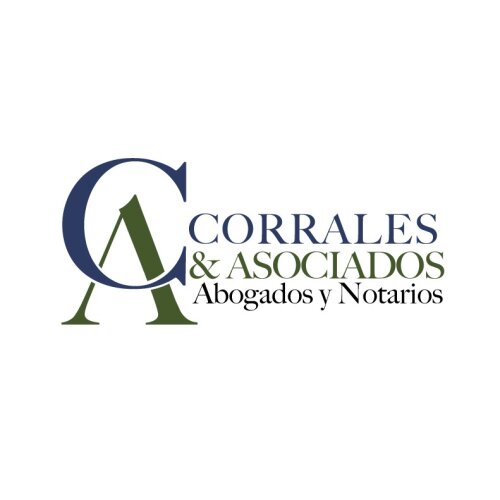Best Merger & Acquisition Lawyers in Nicaragua
Share your needs with us, get contacted by law firms.
Free. Takes 2 min.
Or refine your search by selecting a city:
List of the best lawyers in Nicaragua
About Merger & Acquisition Law in Nicaragua
Merger and Acquisition (M&A) law in Nicaragua is a crucial aspect of the country's rapidly evolving business environment. With a growing economy and an increasing number of international businesses looking to invest, Nicaragua offers a vibrant opportunity for M&A activities. The legal framework governing these activities is designed to balance the interests of businesses, protect stakeholders, and ensure compliance with both domestic and international guidelines. Nicaraguan M&A law encompasses various regulations that cover not only the financial and strategic aspects of mergers and acquisitions but also regulatory approvals, intellectual property, labor concerns, and tax implications.
Why You May Need a Lawyer
There are numerous situations in which you may require the services of a lawyer specializing in M&A in Nicaragua. These can include conducting due diligence on potential acquisition targets, negotiating terms of the merger or acquisition, ensuring compliance with local regulations, handling cross-border legal complexities, and structuring the transaction to optimize tax benefits. A lawyer ensures that all aspects of the transaction are legally sound and that your interests are protected throughout the process. Legal experts can also help in dispute resolution and in handling instances of regulatory intervention.
Local Laws Overview
The key aspects of local laws relevant to Mergers and Acquisitions in Nicaragua include:
- Corporate Laws: These govern the formation, management, and dissolution of corporations and are integral to structuring M&A deals.
- Competition Law: The Nicaraguan competition regulations ensure that mergers and acquisitions do not create monopolistic scenarios that could hamper market competition.
- Foreign Investment Laws: These laws regulate foreign ownership and provide incentives for investments, including certain tax advantages and guarantees.
- Tax Regulations: Important for structuring mergers and acquisitions to maximize financial benefits and minimize liabilities.
- Labor Laws: Address the implications of mergers or acquisitions on employees, including their rights and compensation.
Frequently Asked Questions
1. What is the procedure for gaining regulatory approval for a merger in Nicaragua?
You must submit a formal application to the Nicaraguan Regulatory Commission. This includes details about the merger, financial documents, and how the merger will comply with competition laws.
2. How long does the M&A process typically take in Nicaragua?
On average, the M&A process takes between 6 to 12 months, depending on the complexity of the transaction and how quickly regulatory approvals are granted.
3. Are there specific industries in Nicaragua where foreign investment is restricted?
Yes, foreign investment may be restricted or subject to additional regulations in industries such as telecommunications, mining, and energy.
4. What are common challenges faced during M&As in Nicaragua?
Challenges include regulatory compliance, cultural differences in corporate governance, and navigating foreign exchange controls.
5. Can a foreign entity fully acquire a Nicaraguan company?
Yes, subject to obtaining the necessary regulatory approvals and complying with sector-specific laws.
6. What role do the local courts play in M&A disputes?
Local courts can adjudicate M&A disputes related to contractual breaches, regulatory compliance issues, or shareholder rights.
7. Are there any tax incentives for M&A activities in Nicaragua?
Yes, the government provides certain incentives, including deductions on capital expenses and benefits from tax treaties.
8. How important is due diligence in the M&A process?
Due diligence is critical in identifying potential risks, liabilities, and ensuring the acquisition aligns with your strategic goals.
9. What are the typical costs associated with an M&A transaction in Nicaragua?
Costs can vary widely but typically include legal fees, due diligence costs, and regulatory approval charges.
10. Can I terminate a merger agreement once it's signed?
Termination depends on the terms outlined in the contract, including any legal grounds for withdrawal specified in the agreement.
Additional Resources
For further information, you may want to consult the following resources:
- Ministry of Development, Industry, and Trade of Nicaragua
- The Nicaraguan Chamber of Industries
- Nicaraguan Association of Private Banks
- Legal firms specializing in M&A
- International trade and business organizations
Next Steps
If you’re considering an M&A transaction in Nicaragua, your first step should be to consult a qualified legal professional with experience in Nicaraguan M&A law. Prepare a list of your objectives, gather all necessary documentation, and ensure you have a clear understanding of both local and international legal requirements. Initiate due diligence processes early to identify potential risks and incorporate planning for regulatory approvals into your timeline. By assembling a skilled advisory team and adopting a structured approach, you can navigate the complexities of the M&A landscape in Nicaragua effectively.
Lawzana helps you find the best lawyers and law firms in Nicaragua through a curated and pre-screened list of qualified legal professionals. Our platform offers rankings and detailed profiles of attorneys and law firms, allowing you to compare based on practice areas, including Merger & Acquisition, experience, and client feedback.
Each profile includes a description of the firm's areas of practice, client reviews, team members and partners, year of establishment, spoken languages, office locations, contact information, social media presence, and any published articles or resources. Most firms on our platform speak English and are experienced in both local and international legal matters.
Get a quote from top-rated law firms in Nicaragua — quickly, securely, and without unnecessary hassle.
Disclaimer:
The information provided on this page is for general informational purposes only and does not constitute legal advice. While we strive to ensure the accuracy and relevance of the content, legal information may change over time, and interpretations of the law can vary. You should always consult with a qualified legal professional for advice specific to your situation.
We disclaim all liability for actions taken or not taken based on the content of this page. If you believe any information is incorrect or outdated, please contact us, and we will review and update it where appropriate.
Browse merger & acquisition law firms by city in Nicaragua
Refine your search by selecting a city.










